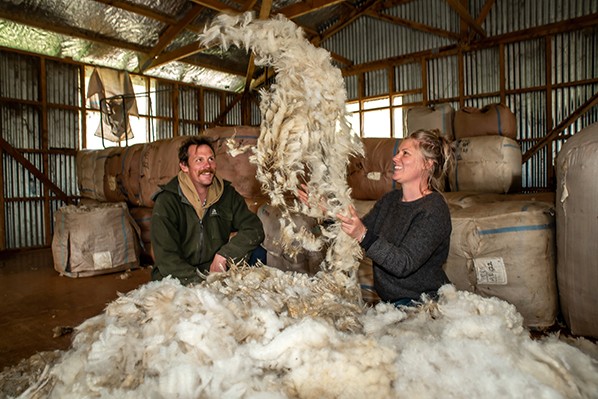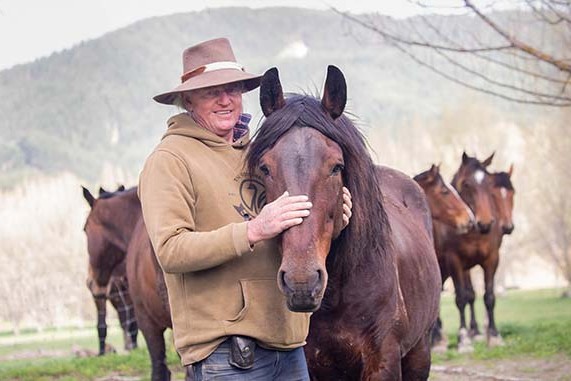Part of the solution
Farmers, particularly young ones, want to be part of the policy-making system with environmental regulation. By Anne Hardie.

If farmers are to remain passionate about farming, they need to know their voice is being heard and that they are part of the solution when policy makers are formulating regulations.
Kellogg Rural Leadership scholar, Hamish Murray, produced a report about the challenge of keeping farmers passionate when up against immense amounts of environmental policy change. Murray, who is Lone Star Farms operations’ manager at Caberfeidh Station in South Canterbury, focused on intensive winter grazing (IWG) as that was a particularly challenging aspect of the regulations for farmers across various sectors.

His report involved interviews with farmers of different age groups and though there was a variation in views, the overwhelming response from farmers was they wanted to have input into policy from the beginning so that practical solutions evolved.
They also wanted a more collaborative approach between industry bodies when dealing with the Government to get the best outcome when writing policy and the end result should be simple.
Long-term planning was needed for implementing regulations and education should take place over a period of time, with practical information for farmers to implement change before new policies were rolled out.
“There is a lot going on in the regulation and policy space and I think farmers have it on their minds all the time,” he says. “Regulations and policy with our current government is forever changing.”
Farmers interviewed emphasised their frustrations about the ever-moving targets of regulations and were passionate in their views.
Murray says they recognised the importance of continually enhancing the environment with sustainable practices, but wanted policy written from the ground up to deliver a better outcome.
“I believe working with farmers from the ground up when writing policy would deliver a better outcome and keep farmers up to date and feel involved. Farmers need to be more utilised with their extensive knowledge when writing policy.”
Murray says the initial rules released for IWG were impractical and impossible for farmers to achieve and the Government did listen to farmers’ concerns and made amendments.
If farmers cannot comply with the rules, they need to apply for a resource consent or have a Freshwater Farm Plan in place to continue IWG. Consents come at a cost which farmers would prefer to use on environmental improvements and enhancements on farms.
Long-term planning is needed for IWG regulations to give farmers time to comprehend those regulations and then implement them before deadlines, he says. That would give farmers the opportunity to report back to industry bodies about their ability to comply with the regulations and enable a pragmatic approach before those deadlines.
The majority of the IWG policy and regulation will affect the younger generations the most, yet Murray says they have not been part of the discussions. He says they really need to be around the table to have a say in their future and offer their ideas.
Younger farmers in their early to mid-20s generally did not want to know about the regulations because the rules were forever changing and few were employed in roles to manage IWG. Their view was to wait until they reached management roles and find out about the rules then – which might be different to now.
Those aged between 25 and 35 had some “really good ideas” but were often sitting in the background at meetings and field days. The older generation tended to be more vocal, passionate and usually the first to put their hand up. Often, the younger generation sat back and did not take part in the discussion.
“Our industry bodies and policymakers need the leaders of tomorrow to be around that table when forming policy ideas. Creating a youth voice for the agricultural industry is something that shouldn’t be underestimated.”
On the need for education, farmers in his survey wanted the right people with the right skillset to educate farmers and a lengthy period to get the right, practical information and implement it onfarm. Most preferred information in the form of fact sheets that provide a practical and simple process to follow. Emailing information directly to farmers brings it to their attention, rather than having to search for it themselves.
Showcasing good management practice (GMP) is seen as an important way to educate other farmers, though interviewees acknowledged farmers are not particularly good at showcasing GMP. Catchment group field days is another way to educate farmers, as it gets them off their own property to visualise and hear how it can be done differently.
As well as education, his report highlighted the need for tools to make the job easier in a practical way. Scrolling through the internet to find information around mitigation techniques can be frustrating and slow.
Murray says incentives to adopt GMPs would also help farmers remain passionate and engaged toward regulations. Incentives helped offset extra costs accumulated with compliance. As an example, he pointed to Fonterra’s Co-operative Difference Payment structure which focuses on five key areas to achieve a premium payment.
“I believe there is opportunity to develop a monetary incentive or something similar for GMP around intensive winter grazing. This would help in mitigating incurred costs for new regulation.”
His report describes incentives as something that motivates or encourages individuals to achieve, as opposed to forcing change upon them.
A model showing the stages for grief and trauma can be applied to change and shows the five stages people go through including, denial, anger, bargaining, depression and acceptance. The latter is often a resigned attitude that may not be a happy space. For farmers tackling difficult change, the way those changes are introduced can make the difference between that resigned attitude or being passionate about farming.
Murray says farmers’ overwhelming desire is to “be heard and be part of the solution”.
“They want a pragmatic approach to writing policy – something that could work onfarm.”
- First published in NZ Dairy Exporter February 2023.




